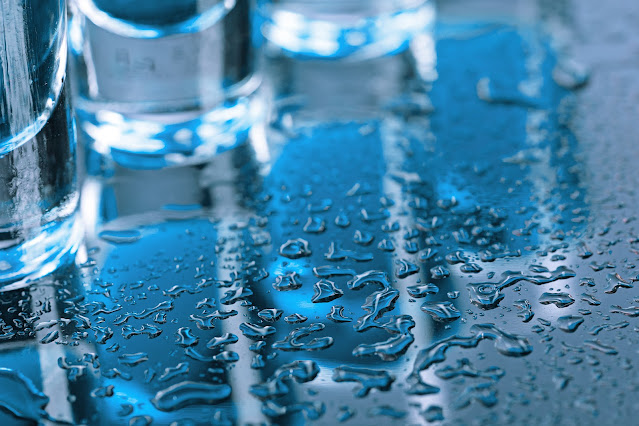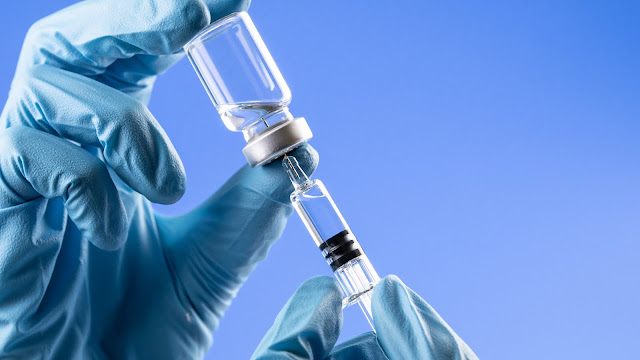Understanding Distilled Water: From Manufacturing Process to Diverse Functions in Healthcare
Distilled water is purified water that undergoes a specific manufacturing process to remove impurities and contaminants. This article explores distilled water, shedding light on its manufacturing process, various functions, and significant role in the healthcare industry.
Define the concept of Distilled Water
Water that has undergone the distillation process is referred to as distilled water. It involves:
Heating water to its boiling point.
Collecting the resulting steam.
Condensing it into a liquid state.
This process effectively separates the water from impurities, such as minerals, chemicals, and biological contaminants, producing high-quality, pure water.
Properties of Distilled Water:
Purity: It is considered one of the most refined forms available in water. The distillation process effectively removes impurities such as minerals, chemicals, and microorganisms, producing high-quality water.
Neutral pH: The pH of distilled water is 7, making it neither acidic nor alkaline. Thanks to its pH level, it may be used in various applications, including in laboratories and medical settings.
Lack of Minerals: As impurities are removed during distillation, minerals and other dissolved solids are eliminated. This characteristic makes distilled water mineral-free, which can be advantageous in certain situations where mineral buildup is undesirable.
Manufacturing Process of Distilled Water:
Water Source Selection: The first step in the manufacturing process of distilled water involves selecting a reliable water source. This water source should be free from pollutants, microorganisms, and other impurities.
Purification: A first purification process removes more significant impurities from the chosen water. This is typically done using techniques like sedimentation and filtration, which help eliminate physical impurities.
Distillation: The distillation procedure is used for the water after pre-purifying. The primary steps involved in distillation are as follows:
Heating: The water is heated in a boiler or distillation chamber to reach its boiling point.
Vaporization: As the water reaches its boiling point, it vaporizes, forming steam.
Condensation: When the steam is gathered and cooled, it returns to a liquid condition via condensing. This condensed water is distilled water.
Collection: The condensed distilled water is collected in a separate container, ensuring its purity and preventing recontamination.
4. Quality Control: Following collection, the distilled water is subjected to stringent quality control inspections. This involves examining the water for any remaining impurities and confirming that it meets the required purity standards. In addition, various tests, such as pH testing, microbial analysis, and chemical composition analysis, are conducted to ensure the water's quality and safety.
Uses and Applications of Distilled Water:
Medical and Healthcare Industry: It is vital in medical and healthcare settings. It is used in medical procedures, wound care, laboratory testing, and the preparation of medications. It is also employed in dialysis machines and respiratory equipment to maintain purity and prevent contamination.
Laboratory and Scientific Research: It is widely used in laboratories for experiments, as a chemical solvent, and for preparing reagents. Its purity ensures accurate and reliable results, particularly in sensitive research areas such as genetics and biochemistry.
Automotive and Electronics: It is used in automotive applications, including battery maintenance and cooling systems. It ensures optimum performance and longevity by preventing mineral deposits, rusting, and scale formation.
Household and Consumer Applications: It finds use in various household applications, such as steam irons, humidifiers, and aquariums. Its mineral-free nature prevents the accumulation of scale and ensures efficient operation.
Cosmetics and Personal Care Products: It is the norm in creating personal care and beauty goods. Its purity and lack of impurities make it suitable for use in products like skincare items, shampoos, and makeup.
Disadvantages or Harmful Effects of Distilled Water
Buy distilled water Adelaide is generally safe for short-term use and specific applications, there are some potential disadvantages and considerations to keep in mind:
Mineral Deficiencies: Distilled water lacks minerals naturally present in water sources. Regular consumption of distilled water as the primary source of hydration may result in a reduced intake of essential minerals such as calcium, magnesium, and potassium. Prolonged mineral deficiencies can have adverse effects on health.
Electrolyte Imbalance: Electrolytes are essential for maintaining proper fluid balance and cellular function in the body. Distilled water does not contain electrolytes, and prolonged consumption without obtaining electrolytes from other sources may disrupt the body's electrolyte balance.
Taste Perception: Distilled water may have a flat or bland taste due to the absence of minerals and dissolved substances that contribute to the taste of natural water. Some individuals may find the taste less satisfying than water with minerals, impacting their overall drinking experience.
Hydration Efficiency: Some research suggests that water with minerals may be more effective at rehydrating the body than distilled water. Minerals in water help with better absorption and moisture retention in the body. Therefore, if distilled water is used exclusively for hydration, it may not be as efficient in maintaining proper hydration levels.
Potential for Increased Urination: Because distilled water lacks minerals, it may have a diuretic effect, causing increased urination. This increased fluid output may lead to the loss of water-soluble vitamins and minerals.
Potential Acidic Effects: Distilled water has a neutral pH of 7, but when consumed, it can combine with carbon dioxide in the body and form a weak carbonic acid. Although the acidity is minimal and generally not a concern for healthy individuals, those with specific health conditions, such as acid reflux or gastric ulcers, may want to consult a healthcare professional before consuming distilled water.
It's important to note that the potential disadvantages mentioned above typically apply to long-term and exclusive consumption of distilled water. However, in most cases, incorporating various sources, including natural minerals or filtered water, can help ensure an adequate intake of minerals and maintain overall health and well-being.
Distilled Water for Drinking: Is It a Safe and Viable Option?
It can be used for drinking purposes, but it is not typically recommended as the sole source of drinking water on a long-term basis. While the distillation removes impurities and contaminants, it also eliminates minerals that benefit our health.
Mineral deficits may result from distilled water for an extended time. Natural minerals found in water, like calcium, magnesium, and potassium, help to balance our diets.
Therefore, consuming water that lacks these minerals could affect our mineral intake, especially if distilled water is the primary source of hydration.
Additionally, the absence of minerals in distilled water can give it a slightly flat taste. As a result, many people find that distilled water does not taste as refreshing as water with minerals.
Conclusion - It is important to note that occasional distilled water, such as using it for short-term hydration or in specific medical situations as advised by a healthcare professional, is generally safe. However, for everyday drinking, it is usually recommended to have a balanced approach by consuming various water sources, including natural mineral water or filtered water that retains essential minerals.
If you are concerned about the quality of your drinking water. In that case, it is recommended to consult local health authorities or water treatment professionals to ensure you have access to safe and suitable drinking water options.




Comments
Post a Comment